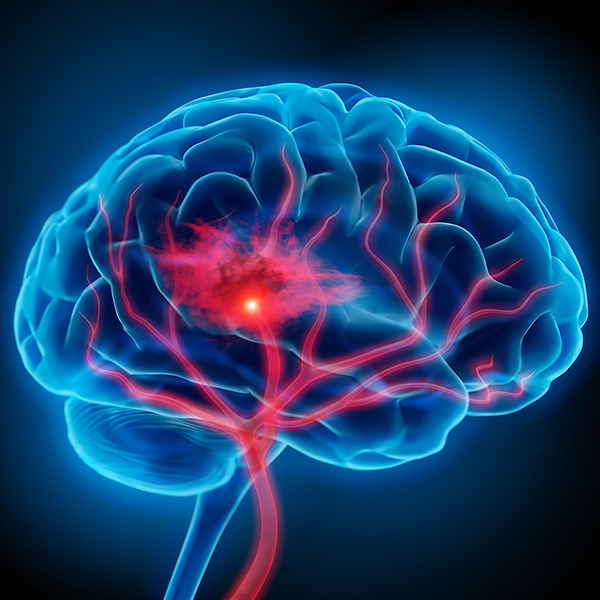Multiple Sclerosis
Comprehensive Approach to Diagnose and Treat Multiple Sclerosis
Loyola Medicine offers a comprehensive, multidisciplinary approach to the treatment of multiple sclerosis (MS). If you or a loved one is worried about unusual symptoms, Loyola’s experts will help you determine a diagnosis and manage this immune-related neurological disease.
About 400,000 Americans have been diagnosed with multiple sclerosis. It is more common in women, caucasians and those with family history of MS.
With MS, the body’s immune system attacks the myelin (the protective sheath) around the nerves. The resulting inflammation damages the nerves and creates lesions, which interrupt or stop nerve signals within the brain and from the brain to the rest of the body.
These lesions can occur along any part of the spinal cord, brain or optic nerve, leading to a wide variety of symptoms. MS can occur at any age, but is usually diagnosed in people between 20 and 50 years of age.
There are four types of MS:
- Relapsing-remitting multiple sclerosis (RRMS) — Relapsing-remitting multple sclerosis (RRMS) is the most common form of multiple sclerosis (MS). With RRMS, a person will have clearly defined attacks with increasingly more serious symptoms. A relapse or flare-up is followed by a partial or complete remission. About 85 percent of all MS patients are diagnosed with RRMS.
- Secondary-progressive multiple sclerosis (SPMS) — Most people who are diagnosed with RRMS will later transition to secondary-progressive MS (SPMS). With SPMS, the disease begins to progress at more steady rate and may or may not be marked by relapses.
- Primary-progressive multiple sclerosis (PPMS) — With primary-progressive multiple sclerosis (PPMS), the disease develops at a steadily increasing rate from the start. The rate may vary over time, but there are no relapses or remissions. Approximately 10 percent of all MS patients are diagnosed with PPMS.
- Progressive-relapsing multiple sclerosis (PRMS) — Progressive-relapsing multiple sclerosis (PRMS) is the least common form of MS. With PRMS, the disease develops at a steady rate from the beginning with occasional flare-ups, from which there may or may not be symptom remissions.
Why Choose Loyola for Multiple Sclerosis Treatment?
Loyola’s compassionate team understands that multiple sclerosis can be life-changing not only for the patient, but also for family members.
Loyola Medicine's neurology and neurosurgery departments are nationally recognized for providing exceptional care in an academic setting, training future leaders in neurology and neurosurgery.
Loyola’s multiple sclerosis clinic is recognized by the Greater Illinois Chapter of the National Multiple Sclerosis Society, which refers patients to Loyola for treatment of MS. In addition, Loyola’s neuro intensive care unit is staffed by trained neurology nurses, who have earned Magnet status.
What are the Symptoms of Multiple Sclerosis?
Not every MS patient will experience the disease in the same way, but the most common early symptoms are:
- Blurred vision or double vision
- Clumsiness or coordination problems
- Loss of balance
- Numbness, tingling, itching or burning sensations
- Thinking problems
- Weakness in an arm or leg
Later symptoms of MS may include:
- Bowel problems
- Cognitive problems
- Dizziness
- Fatigue
- Muscle spasms
- Sexual problems
- Speech problems
- Tremors
- Trouble walking
How is Multiple Sclerosis Diagnosed?
There currently is no definitive test for MS. Loyola’s doctors arrive at a diagnosis of MS by running tests to exclude other conditions with similar symptoms, such as exposure to toxic materials, vitamin B12 deficiency, collagen-vascular diseases, viral infections, Guillain-Barré syndrome and rare inherited disorders.
Evaluation of your symptoms may include:
- Blood tests
- Cerebrospinal fluid analysis
- Detailed medical, personal and family history
- MRI (magnetic resonance imaging)
- Neurologic exam
- Visual evoked potentials test
Patients who have experienced just one MS-like attack are said to have clinically isolated syndrome (CIS). These patients may or may not later develop MS.
Doctors arrive at a diagnosis of MS if a patient has two lesions that occurred at least one month apart.
What are the Treatment Options for Multiple Sclerosis?
We offer several treatments to slow the progression of MS and will work closely with you to manage symptoms.
Your medical team may include neurologists, urologists, physical therapists, occupational therapists, speech therapists, ophthalmologists, psychiatrists and social workers.
Your treatment may include:
- Counseling
- Lifestyle changes
- Medication to delay progression
- Nutritional planning
- Occupational therapy
- Physical therapy
- Prescriptions to help with muscle spasms, urinary problems, fatigue and mood problems
- Speech therapy
- Steroids to control inflammation and manage severity of attacks
- Support groups
Research Discoveries and Clinical Trials for Multiple Sclerosis
As an academic medical center, Loyola Medicine is dedicated to improving future treatments by conducting research on new medications and protocols. Loyola’s patients benefit from research discoveries made here.

Request an Appointment
Our expert team provides comprehensive care for patients to determine neurological diseases, injuries and issues interfering with critical neurological functions. Schedule an appointment today.
Schedule a Telehealth Appointment
